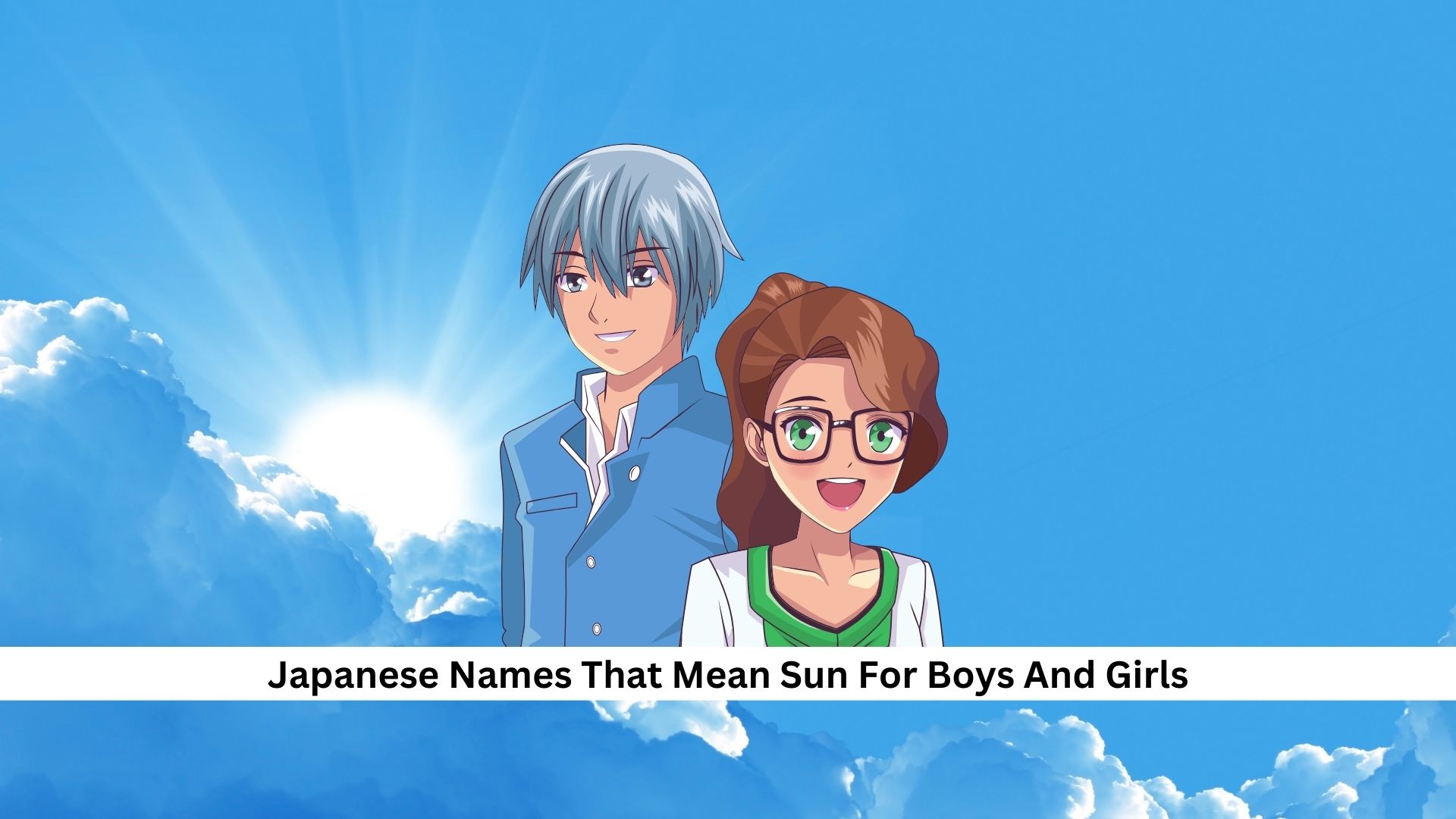Looking for a sunny name? Here are over 120 Japanese names that mean Sun for both boys and girls. These names are not just pretty; they’re full of warmth and life, just like the sun itself. Whether you’re picking a name for your baby or just love learning about names, this list has some bright ideas. Let’s find out what these sunny names have to offer!
List of Japanese Names That Mean Sun for Boys and Girls
Girl Names in Japan Meaning Sun
When we look at Japanese girl names linked to the sun, we see a strong connection to nature and the importance of the sun. Aiko translates to ‘child of love and the sun,’ blending natural elements with deep feelings and values, tying people to their environment and Japanese traditions. Choosing these names reflects a hope for a bright and happy future for the child.
- Akane (茜) – “Deep red,” like sunset, symbolizing the vibrant colors of the setting sun.
- Akari (明里) – “Light, brightness,” directly symbolizing the light and brightness of the sun.
- Akemi (明美) – “Bright beauty,” symbolizing the radiant beauty akin to sunlight.
- Amaterasu (天照) – Sun goddess, directly connected to the sun as the deity of the sun in Japanese mythology.
- Asami (朝美) – “Morning beauty,” symbolizing the beauty of the sunrise.
- Asa (朝) – “Morning,” directly connected to the time when the sun rises.
- Asuka (明日香) – “Flying bird,” associated with dawn, symbolizing the start of a new day with the sun rising.
- Chika (千花) – “Scatter flowers,” indirectly symbolizing flowers that bloom with sunlight.
- Emiko (恵美子) – “Blessed, beautiful child,” symbolizing a child blessed by the sun’s warmth.
- Fuyumi (冬美) – “Winter beauty,” contrasting with the sun, highlighting the sun’s absence during winter.
- Haruko (春子) – “Spring child,” symbolizing the season when the sun returns and brings new life.
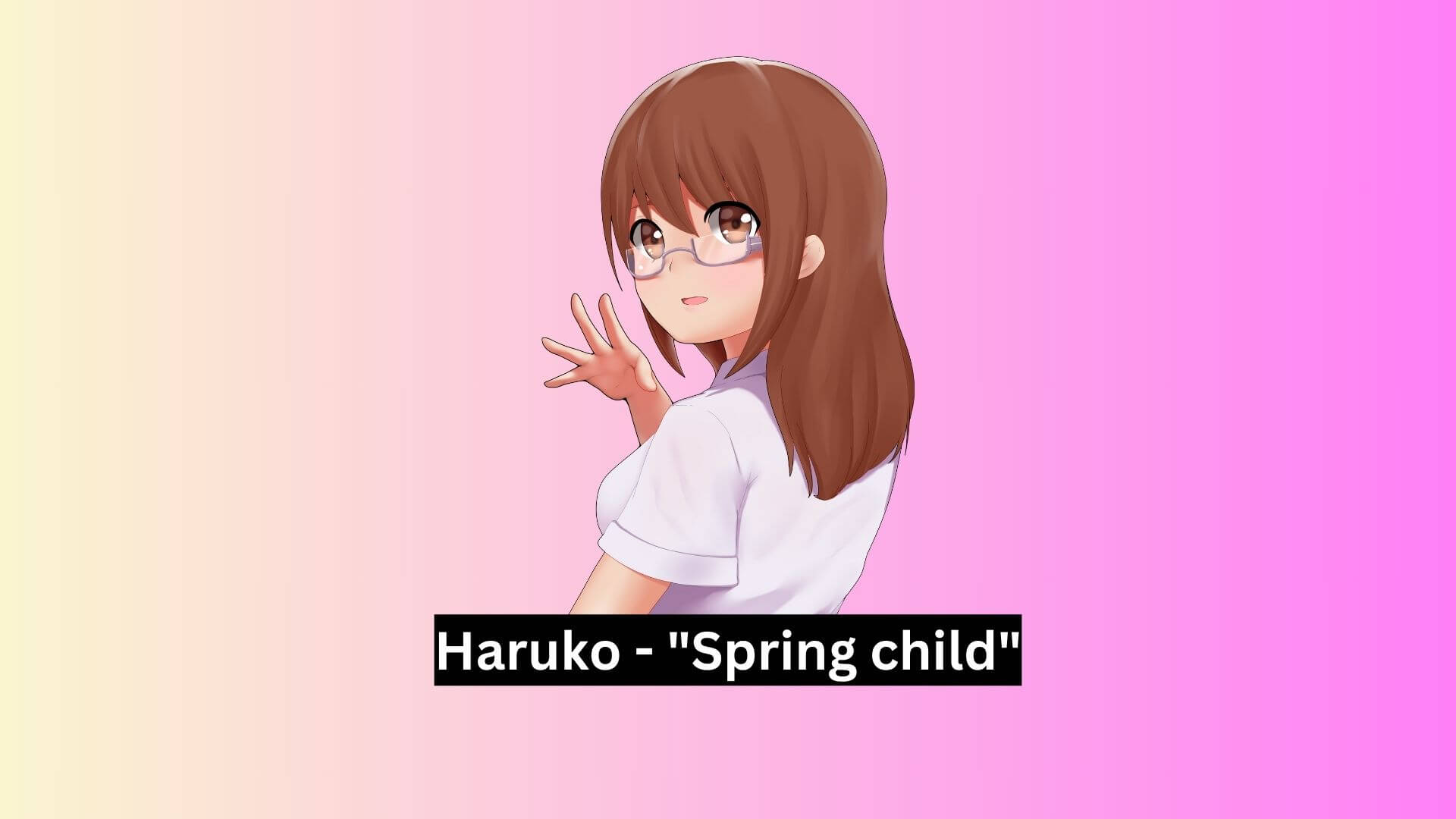
- Hina (陽菜) – “Sun, light,” directly symbolizing the sun and its light.
- Hikari (光) – “Light, radiance,” directly symbolizing the sun’s light and radiance.
- Hotaru (蛍) – “Firefly,” symbolizing a small light, reminiscent of the sun’s glow.
- Kaho (花保) – “Ka” (fruit) + “ho” (light), symbolizing the sun’s role in nurturing fruit.
- Kanna (神奈) – “Gods’ power,” symbolizing the divine power of the sun.
- Kasumi (霞) – “Mist,” lit by the sun, symbolizing the interplay of sunlight and mist.
- Kiara (清良) – “Clear, bright,” symbolizing the clarity and brightness of the sun.
- Kiko (喜子) – “Happy child,” indirectly symbolizing the joy brought by sunlight.
- Kira (綺羅) – “Glitter,” symbolizing the glittering effect of sunlight.
- Kohana (小花) – “Little flower,” implying a flower nurtured by the sun.
- Koharu (小春) – “Small spring,” symbolizing the warmth of the sun in early spring.
- Mai (舞) – “Dance,” in sunlight, symbolizing a joyful dance under the sun.
- Mahina (真陽) – “Moon,” as the sun’s partner, symbolizing the relationship between the moon and the sun.
- Masuyo (益世) – “Benefit the world,” symbolizing the sun’s role in sustaining life.
- Mei (芽衣) – “Bright, beautiful,” directly symbolizing the sun’s brightness and beauty.
- Mika (美香) – “New moon,” as part of the sun cycle, symbolizing the phases influenced by the sun.
- Mio (美桜) – “Beautiful cherry,” symbolizing cherry blossoms that bloom under the sun.
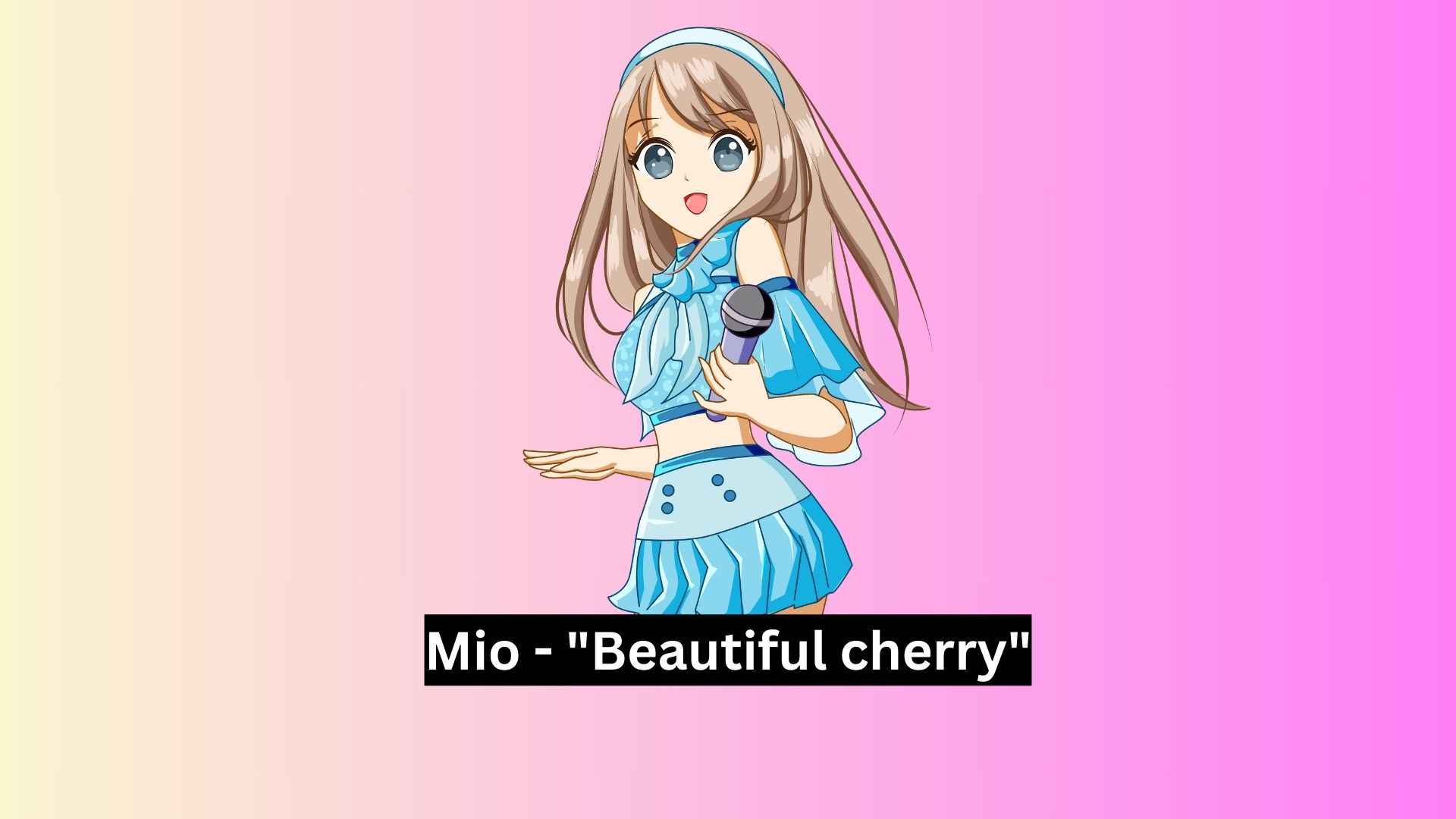
- Mitsuki (光月) – “Light, moon,” symbolizing the light of the moon that reflects the sun.
- Miyu (美優) – “Beautiful moon,” symbolizing the beauty of the moon illuminated by the sun.
- Nami (波) – “Wave,” symbolizing waves sparkling under the sun.
- Natsuki (夏希) – “Summer hope,” symbolizing the hope and warmth of the summer sun.
- Natsumi (夏美) – “Summer beauty,” symbolizing the beauty of the summer sun.
- Nori (法) – “Law, light,” symbolizing the guiding light of the sun.
- Nozomi (望) – “Hope,” symbolizing the bright hope brought by sunlight.
- Rumi (流美) – “Flow, beauty,” symbolizing the flow of light from the sun.
- Saki (咲) – “Blossom,” symbolizing flowers that need sunlight to bloom.
- Suzu (鈴) – “Bell,” symbolizing a bright and cheerful sound, like sunlight.
- Tama (玉) – “Jewel,” symbolizing something shiny like the sun.
- Tomi (富美) – “Rich,” symbolizing the abundance provided by sunlight.
- Tora (虎) – “Tiger,” symbolizing the sun-colored fur of a tiger.
- Umeko (梅子) – “Plum blossom child,” symbolizing a child born in spring, when the sun returns.
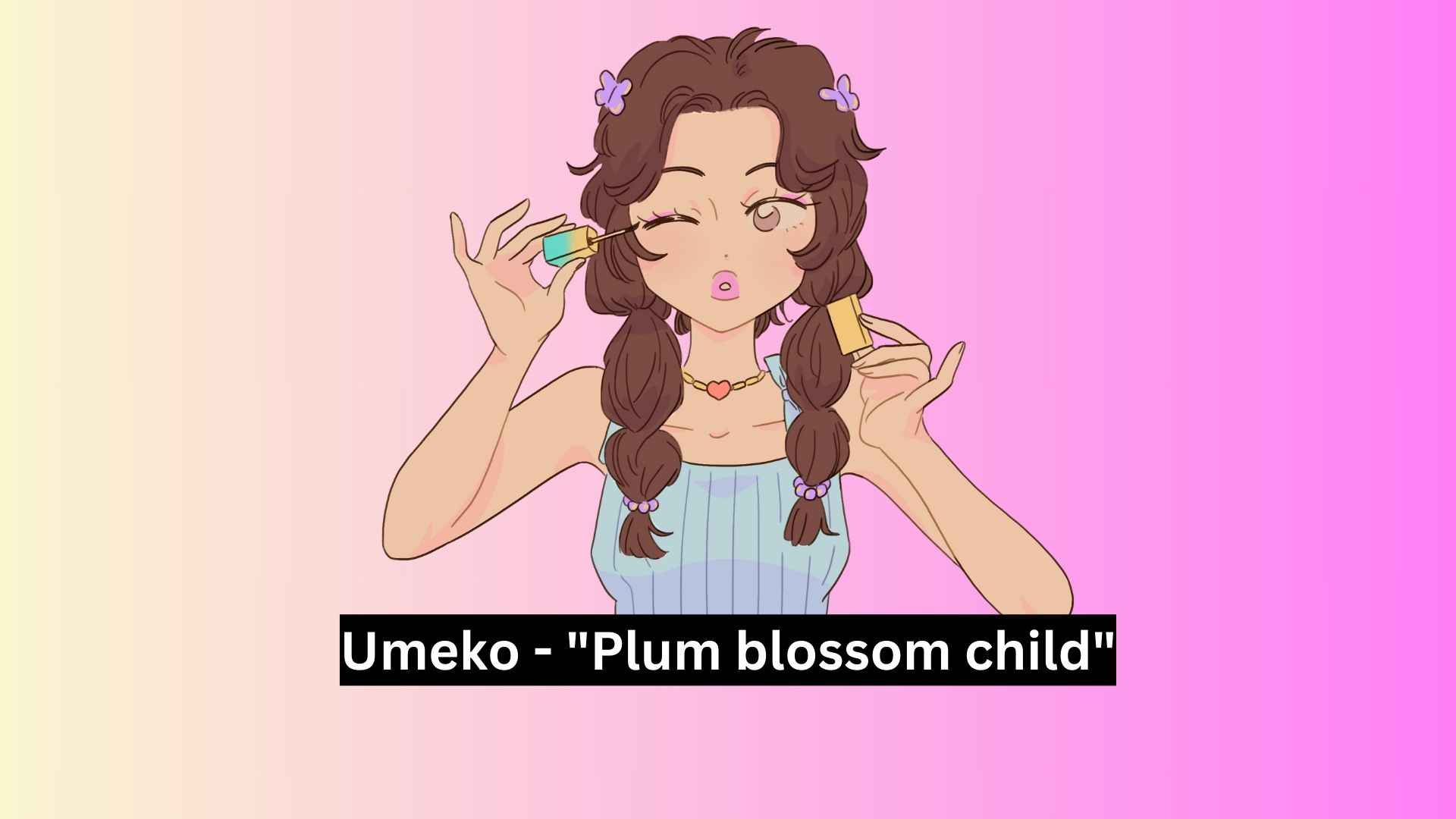
- Umi (海) – “Sea,” symbolizing the sun’s reflection on the sea.
- Yua (結愛) – “Tie, binding,” symbolizing the sun’s rays that bind and connect everything.
- Yumi (弓美) – “Beautiful bow,” symbolizing a rainbow, which is sunlight refracted.
- Zuki (月) – “Moon,” as the sun’s companion, symbolizing their connection.
- Hinako (陽菜子) – “Sun child,” directly symbolizing a child connected to the sun.
- Akane (茜) – “Bright red,” like the sun, symbolizing the vibrant color of the sun.
- Amaterasu (天照) – “Shining over heaven,” directly connected to the sun as a deity.
- Asako (朝子) – “Morning sun child,” symbolizing a child connected to the sunrise.
- Hikari (光) – “Light,” directly symbolizing the sun’s light.
- Minako (美奈子) – “Beautiful sun child,” symbolizing a child connected to the beauty of the sun.
- Natsuko (夏子) – “Summer child,” symbolizing a child born in the sun’s season.
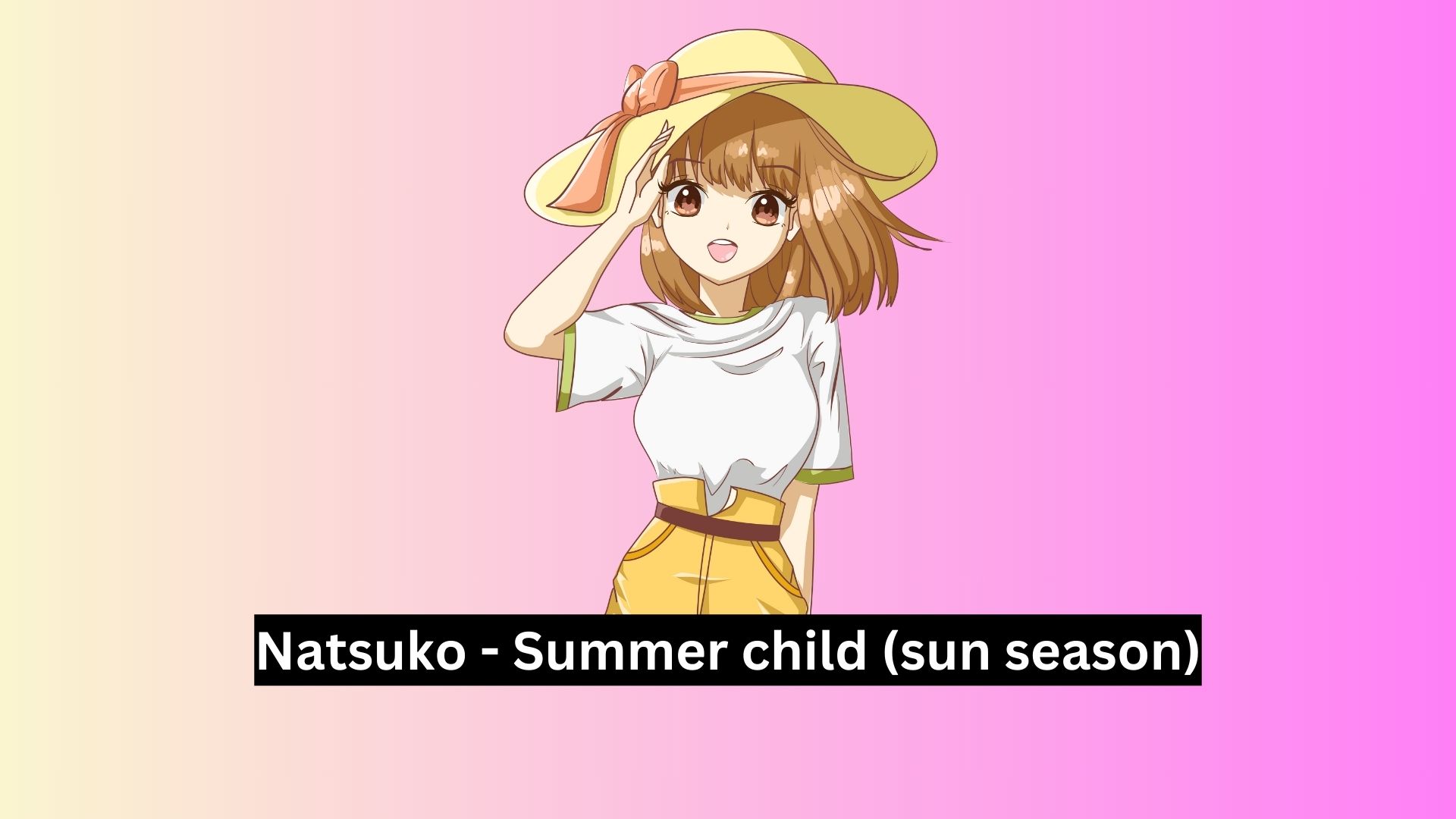
- Akemi (明美) – “Bright beauty,” symbolizing the radiant beauty of sunlight.
- Hoshiko (星子) – “Star child,” indirectly symbolizing the sun, which is a star.
- Sayuri (小百合) – “Small lily,” symbolizing a sun-loving flower.
- Taiyo (太陽) – “Sun,” directly symbolizing the sun.
- Yoko (陽子) – “Sun child,” directly symbolizing a child connected to the sun.
- Akane – “Deep red” like sunset, symbolizing the vibrant colors of the setting sun.
- Akari – “Light, brightness,” directly symbolizing the light and brightness of the sun.
- Akemi – “Bright beauty,” symbolizing the radiant beauty akin to sunlight.
- Amaterasu – Sun goddess, directly connected to the sun as the deity of the sun in Japanese mythology.
- Asami – “Morning beauty,” symbolizing the beauty of the sunrise.
- Asa – “Morning,” directly connected to the time when the sun rises.
- Asuka – “Flying bird,” associated with dawn, symbolizing the start of a new day with the sun rising.
- Chika – “Scatter flowers,” indirectly symbolizing flowers that bloom with sunlight.
- Emiko – “Blessed, beautiful child,” symbolizing a child blessed by the sun’s warmth.
- Fuyumi – “Winter beauty,” contrasting with the sun, highlighting the sun’s absence during winter.
- Haruko – “Spring child,” symbolizes the season when the sun returns and brings new life.
You may also like our list of Japanese names meaning Fire.
Boy Names in Japan Meaning Sun
Exploring Japanese boy names linked to the sun, we uncover meanings full of life and energy. For example, ‘Hinata’ means ‘sunny place’ or ‘towards the sun.’ It perfectly captures the essence of sunlight. Then there’s ‘Haruki,’ which stands for ‘radiant life,’ and ‘Akio,’ meaning ‘bright man.’ These names not only sound good but also carry deep cultural meanings, showing the sun’s strength and brilliance.
- Akio (昭雄) – “Bright man,” directly symbolizing a man with the brightness of the sun.
- Asahi (朝日) – “Morning sun,” directly symbolizing the sun rising in the morning.
- Dai (大) – “Great,” like the sun, symbolizing the immense power and presence of the sun.
- Daichi (大地) – “Great land,” sun-warmed, symbolizing the land warmed by the sun’s rays.
- Eiji (栄治) – “Shining peace,” symbolizing the peaceful and calming light of the sun.
- Haruto (陽翔) – “Sun and fly,” combining the sun’s light with the freedom of flight.
- Haru (春) – “Spring,” symbolizing the sunny season when the sun brings new life.
- Hibiki (響) – “Echo,” symbolic of the echoing light of the sun.
- Hideo (英男) – “Excellent man,” like the sun, symbolizing a man with excellent qualities illuminated by the sun.
- Hikaru (光) – “To shine,” directly symbolizing the shining light of the sun.
- Hinata (日向) – “Sunny place,” directly symbolizing a place bathed in sunlight.
- Hiroshi (宏) – “Generous,” like the sun, symbolizing the sun’s generous light and warmth.
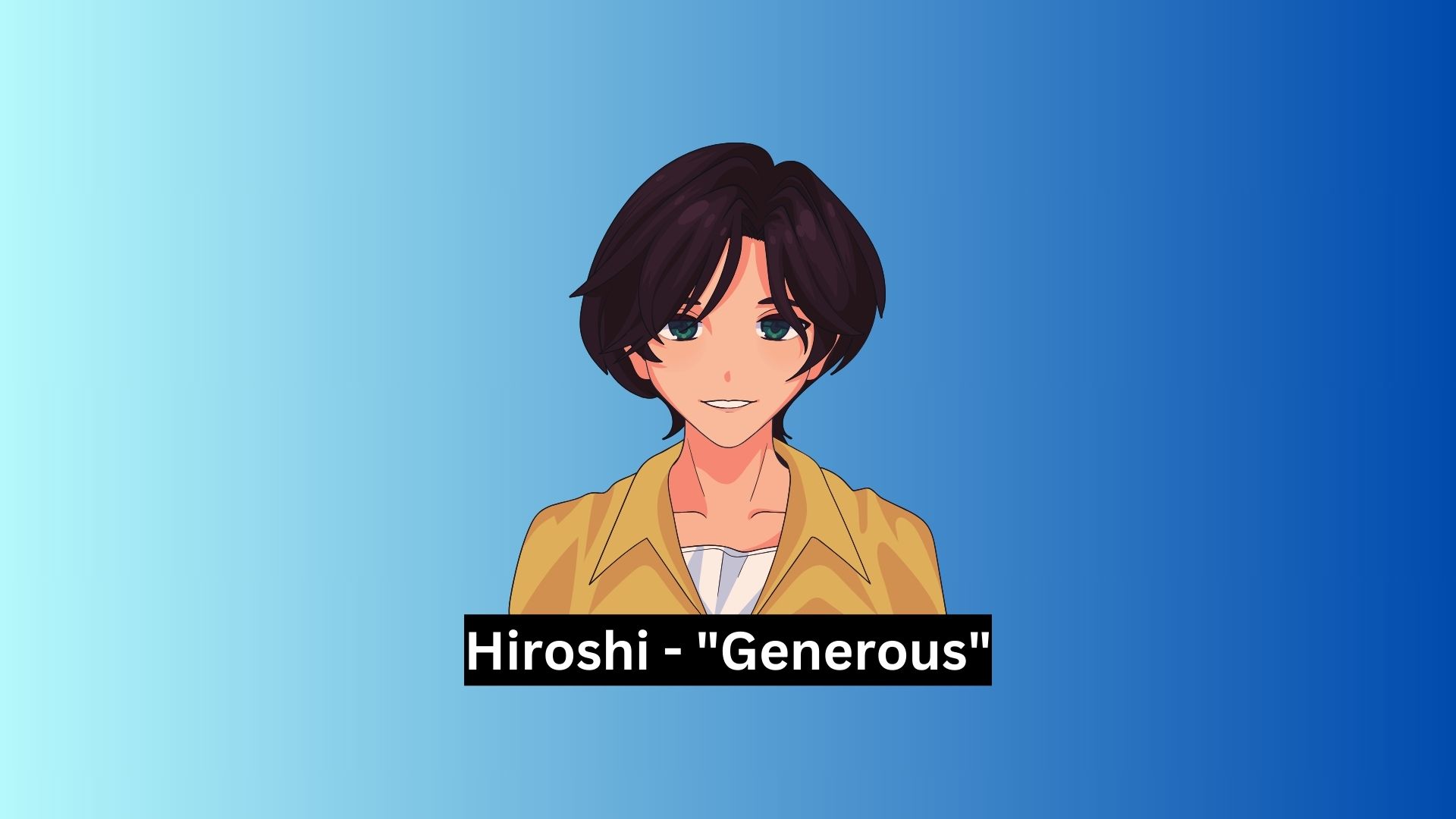
- Hoshi (星) – “Star,” indirectly symbolizing the sun, which is a star.
- Isamu (勇) – “Brave,” like the sun, symbolizing the bravery and strength associated with the sun.
- Jiro (次郎) – “Second son,” bright like the sun, symbolizing the brightness of a second-born child.
- Kaito (海斗) – “Sea, ocean,” reflecting the sun, symbolizing the sunlight reflecting off the ocean.
- Katsuo (勝雄) – “Victorious man,” symbolizing the victorious and powerful nature of the sun.
- Kei (恵) – “Blessed,” indirectly symbolizing the blessings provided by the sun.
- Ken (健) – “Strong, healthy,” symbolizing the strength and health nurtured by sunlight.
- Kenta (健太) – “Big, strong,” symbolizing the robust and strong presence of the sun.
- Kin (金) – “Golden,” sun-related, symbolizing the golden light of the sun.
- Kiyoshi (清) – “Pure,” like sunlight, symbolizing the pure and untainted light of the sun.
- Koki (光輝) – “Light, shine,” directly symbolizing the light and shine of the sun.
- Makoto (誠) – “Sincerity,” clear as day, symbolizing the clarity and honesty illuminated by sunlight.
- Mako (真子) – “True,” as daylight, symbolizing the true and revealing nature of daylight.
- Masaru (勝) – “Victory,” sun-like power, symbolizing the powerful and victorious nature of the sun.
- Nao (直) – “Honest,” symbolizing the honesty and clarity associated with sunlight.
- Naoki (直樹) – “Honest tree,” in sunlight, symbolizing a tree growing honestly under the sun.
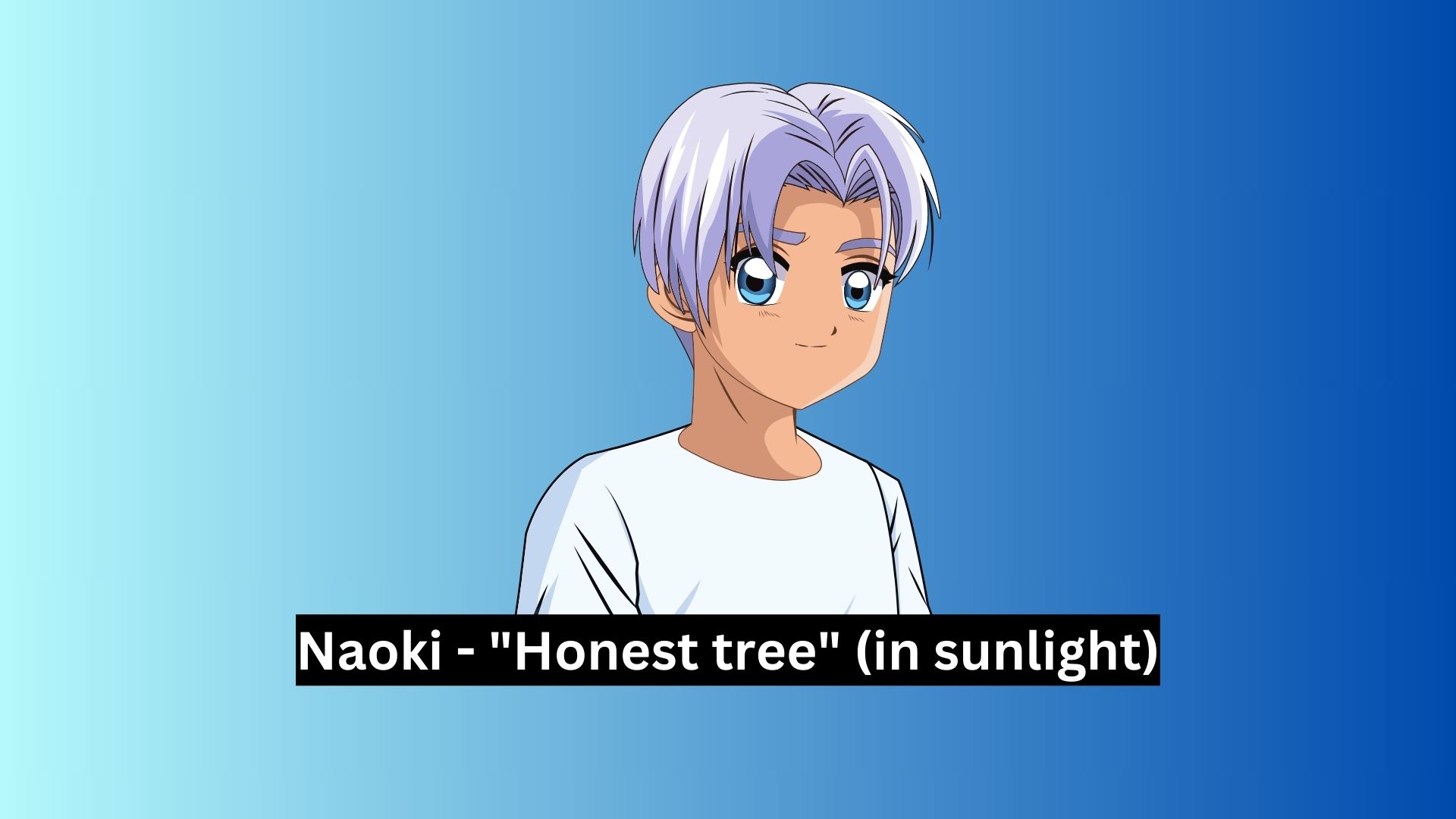
- Noboru (昇) – “To rise,” like the sun, symbolizing the rising and ascending nature of the sun.
- Raiden (雷電) – “Thunder and lightning,” indirectly symbolizing the powerful energy of the sun.
- Riku (陸) – “Land,” bathed in sun, symbolizing the land illuminated and warmed by sunlight.
- Rin (凛) – “Dignified,” symbolizing the dignified and majestic nature of the sun.
- Ryo (涼) – “Excellence,” symbolizing the excellent and superior qualities associated with the sun.
- Saburo (三郎) – “Third son,” sunny child, symbolizing a child with a sunny and bright disposition.
- Sho (翔) – “Soar,” like sun rays, symbolizing the upward and expansive movement of sunlight.
- Sora (空) – “Sky,” where the sun shines, symbolizing the vast sky illuminated by the sun.
- Taiyo (太陽) – “Sun,” big, directly symbolizing the sun.
- Takara (宝) – “Treasure,” symbolizing the valuable and precious nature of sunlight.
- Takashi (隆) – “Noble, prosperous,” symbolizing the noble and prosperous qualities nurtured by the sun.
- Taro (太郎) – “First-born son,” bright, symbolizing the bright and promising nature of a first-born child.
- Toshi (俊) – “Alert, bright,” symbolizing the alertness and brightness associated with sunlight.
- Yasu (安) – “Calm,” symbolizing the calm and peaceful light of the sun.
- Yori (頼) – “Trust,” symbolizing the reliable and trustworthy nature of sunlight.
- Yoshi (良) – “Good luck,” symbolizing the good fortune and positivity brought by the sun.
- Yuki (雪) – “Snow,” sun-reflecting, symbolizing the reflective and bright nature of snow under the sun.
- Yuto (悠斗) – “One who soars,” like the sun, symbolizing the soaring and expansive nature of sunlight.
- Zen (善) – “Goodness,” like sunlight, symbolizing the positive and beneficial qualities of sunlight.
- Zenko (善子) – “Good child,” sunny, symbolizing a child with a sunny and cheerful disposition.
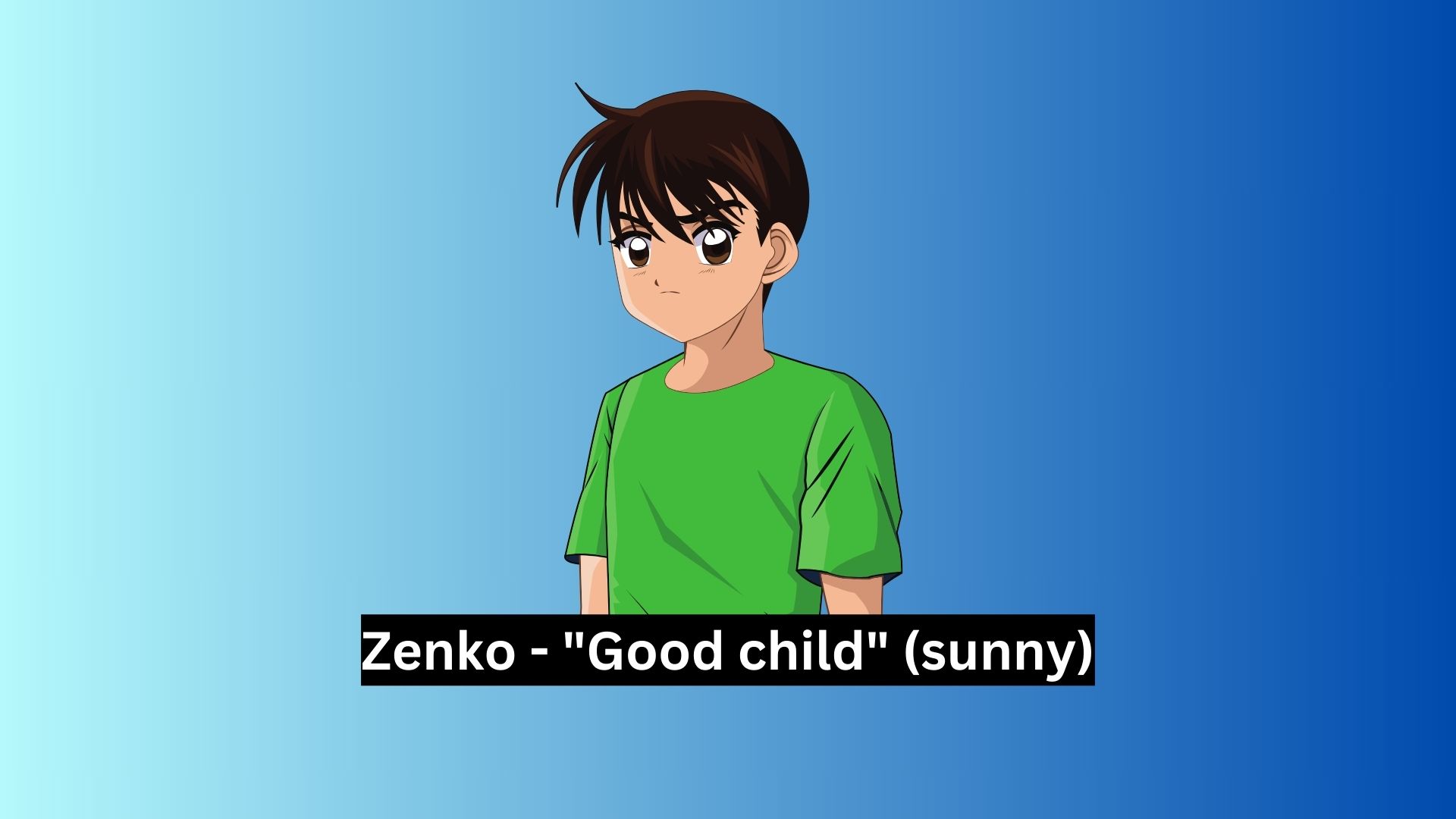
- Hinata (日向) – “Sunny place,” directly symbolizing a place filled with sunlight.
- Haru (春) – “Spring,” associated with the return of the sun, symbolizing the season of renewed sunlight.
- Asahi (朝日) – “Morning sun,” directly symbolizing the sun at dawn.
- Taiyou (太陽) – “Sun,” directly symbolizing the sun.
- Hikaru (光) – “To shine, radiate,” directly symbolizing the light and radiance of the sun.
- Nikko (日光) – “Sunlight,” directly symbolizing the light from the sun.
- Haruki (春輝) – “Shining sun,” directly symbolizing the bright and shining nature of the sun.
- Souta (颯太) – “Big/strong sun,” symbolizing the powerful and robust presence of the sun.
- Hideki (秀樹) – “Excellent sun tree,” symbolizing a tree that thrives under the excellent light of the sun.
- Teruo (輝男) – “Shining man,” symbolizing a person who shines brightly like the sun.
- Kenta (健太) – “Healthy/strong sun,” symbolizing the health and strength nurtured by sunlight.
- Hinode (日の出) – “Sunrise,” directly symbolizing the rising sun.
- Yoichi (陽一) – “Shining first son,” symbolizing the bright and promising nature of a first-born child illuminated by the sun.
- Akatsuki (暁) – “Dawn,” directly symbolizing the beginning of the day when the sun rises.
You may also like our list of Japanese names that mean moon.
Conclusion
In short, Japanese names linked to the sun carry deep meanings and show a strong respect for nature. People choose these names not only for their beauty but also for the positive traits they represent. They express hopes for strength, light, and growth. By picking these names, there’s a clear link between tradition and the natural world, showing how much the sun influences personal identity in Japanese culture.
Keep visiting our site The Jeep Diva for more such articles.

Sara Sabrena is an experienced content writer and a passionate movie fan. She loves analyzing movies and writes engaging reviews and in-depth analyses of films, from independent ones to big blockbusters. With her background in literature and media studies, Sara adds depth and her own unique viewpoint to her writing.

